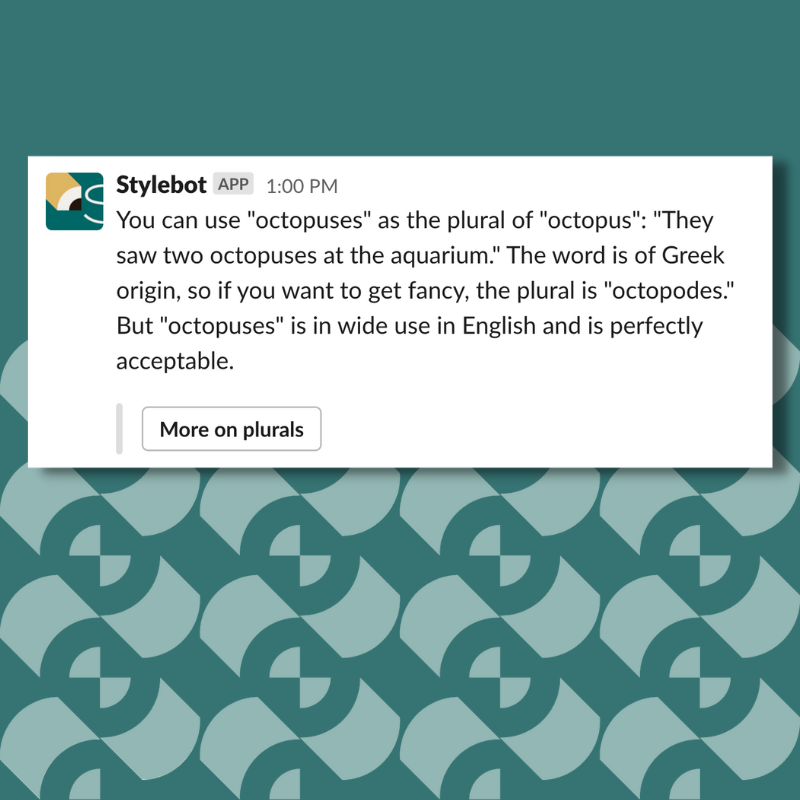Pluralizing a word in English can be…tricky. Geese, not gooses, moose but not meese, and sheep, not sheeps. And that’s just the barnyard. If we move to the ocean, we come across an animal that can be especially tricky to pluralize: octopus. Considering words with similar endings take an “i” pluralization — cacti, alumni, nuclei — it would make sense that octopus would become octopi. But the word is of Greek origin, so if octopuses (the accepted plural form in English) isn’t doing it for you, you can get fancy with octopodes.


